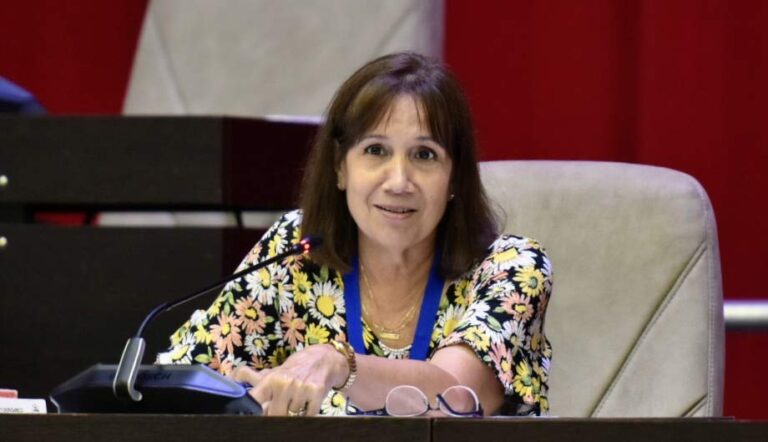During the preparatory session prior to the second extraordinary session of the National Assembly of People’s Power (ANAP, Parliament), the vice president of the legislative body, Ana Mari Machado, insisted that parliamentarians –qualified as opinion leaders – must constantly are actors of communication, in defense of the Cuban social system.
For her part, the dean of the Faculty of Communication of the University of Havana, Hilda Saladrigas, referred to that process in daily life, which goes beyond the work of the media.
In a workshop on the role of social communication as a pillar of government management, she emphasized the importance of its institutionalization, which will take a step forward with the Law related to this issue that Parliament will debate tomorrow.
The scholar added that in order to achieve efficient interaction it is necessary to take into account a set of elements so that it results in a process that builds identities and cultures, where human, social and technological factors converge.
In the same way, she stressed that it is essential to take into account the contextual aspects, the audiences to which the message is directed and what impact the communicative action has.
In a nation with limited economic and technological resources -she said- the main resource is the articulate word.
In this sense, the first vice president of the Union of Cuban Journalists, Rosa Miriam Elizalde, highlighted the integrity of public discourse; at the time that she described the Social Communication Law as national security, because at present it becomes imperative to regulate the power of the large communication consortiums worldwide.
Although, at this point -she clarified- the Law is still not enough, and it is special for Cuba, because the fact that the island is on the list of countries that supposedly sponsor terrorism (according to the United States) it allows these companies to control the data of the citizens.
She added that with the massification of the media, with the emergence and extension of information and communication technologies, it is vital to connect the global and local agendas.
She said that over 60 percent of the Cuban population has access to the Internet and spends a great deal of time on the Internet, and given this scenario, policies need to be customized.
The head of communication of the legislative body, Enrique Moreno, recommended that each people’s power process have media coverage, feedback with the opinions of the population, as well as enhance the public nature of the sessions of the National Assembly.
ef/jha/mpp









